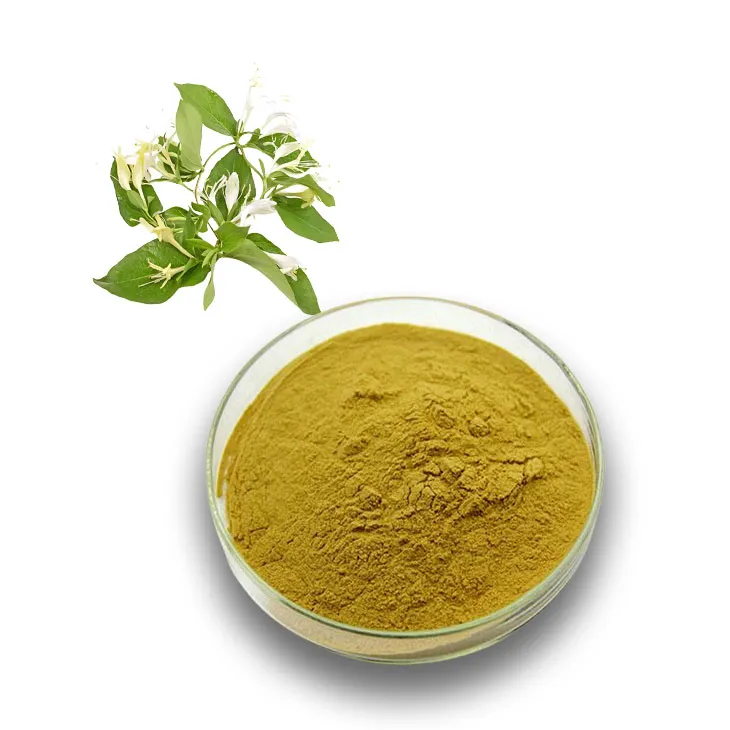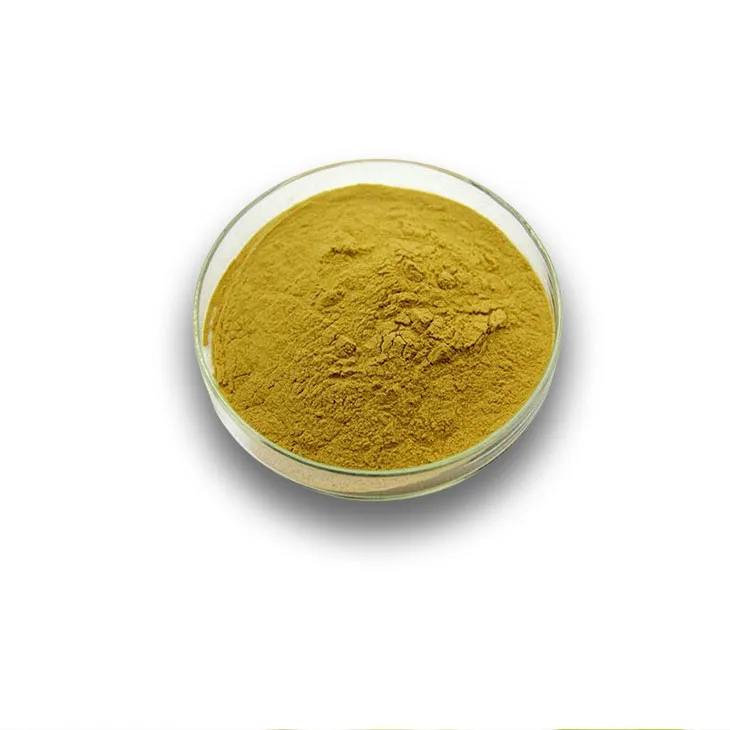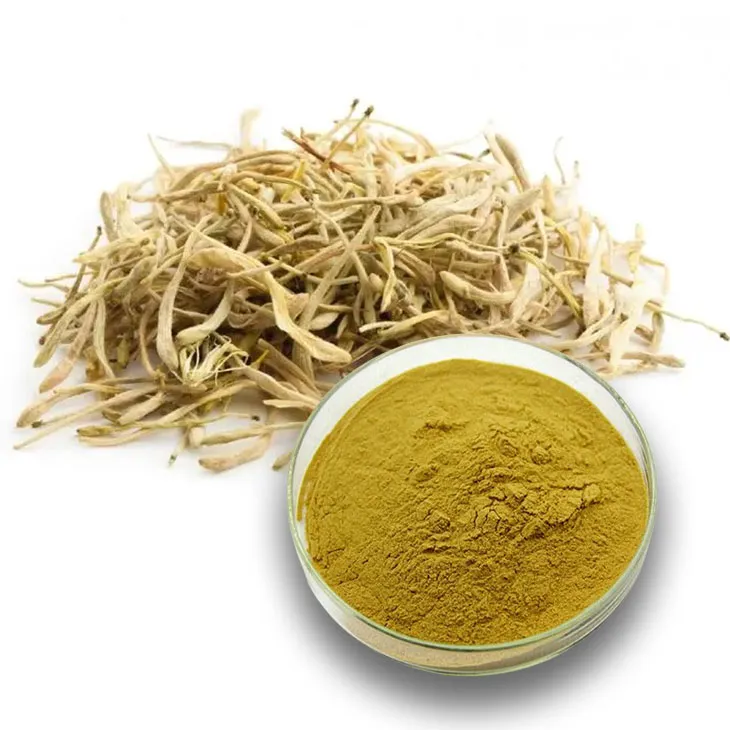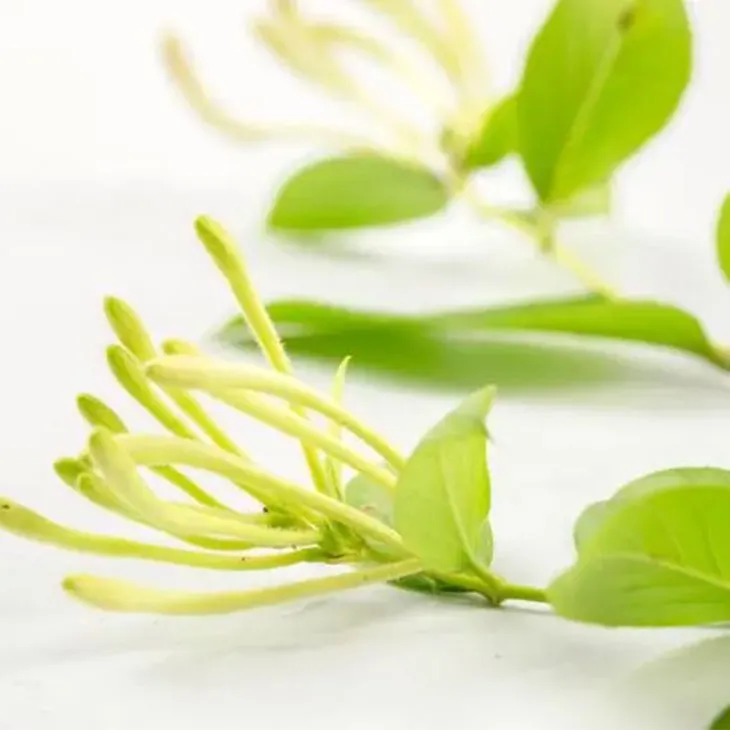- 0086-571-85302990
- sales@greenskybio.com
Honeysuckle pollen: Benefits, uses and how it improves your home.
2024-11-13

1. Introduction to Honeysuckle Pollen
Honeysuckle, a well - known and beloved plant, produces pollen that is often overlooked in terms of its many virtues. Honeysuckle Pollen is a minuscule yet powerful substance that holds great potential for both human health and home improvement. This natural product is rich in nutrients and bioactive compounds, making it a valuable addition to our understanding of natural remedies and environmental enhancers.

2. The Health Benefits of Honeysuckle Pollen
2.1 Nutritional Value
Honeysuckle pollen is a veritable storehouse of nutrients. It contains a significant amount of proteins, which are essential for building and repairing tissues in the body. These proteins are of high quality, consisting of a variety of amino acids that our bodies may not be able to synthesize on their own. In addition, it is rich in vitamins, such as vitamin C, which is crucial for a healthy immune system, and vitamin E, an antioxidant that helps protect our cells from damage. Minerals like potassium, calcium, and magnesium are also present in honeysuckle pollen. Potassium is important for maintaining proper heart function and fluid balance in the body, while calcium is necessary for strong bones and teeth, and magnesium plays a role in many enzymatic reactions.
2.2 Antioxidant Properties
The antioxidant properties of honeysuckle pollen are among its most remarkable features. Antioxidants combat free radicals in the body. Free radicals are unstable molecules that can cause oxidative stress, which has been linked to a variety of health problems, including aging, heart disease, and cancer. Honeysuckle pollen contains flavonoids and phenolic compounds that act as antioxidants. These substances scavenge free radicals, reducing their harmful effects and helping to maintain the overall health of the body. For example, flavonoids like Quercetin and kaempferol in the pollen can help prevent cellular damage and inflammation, which are key factors in many chronic diseases.
2.3 Immune - Boosting Effects
Honeysuckle pollen can also give a significant boost to the immune system. Its rich nutrient profile, including vitamins, minerals, and proteins, provides the necessary building blocks for a strong immune response. Additionally, the bioactive compounds in the pollen, such as polysaccharides, have been shown to stimulate the activity of immune cells. For instance, macrophages, which are important immune cells responsible for engulfing and destroying foreign invaders like bacteria and viruses, can be activated by certain components in honeysuckle pollen. This enhanced immune function can help the body fend off infections more effectively and reduce the risk of getting sick.

3. Practical Uses of Honeysuckle Pollen
3.1 In Traditional Medicine
For centuries, honeysuckle pollen has been used in traditional medicine. In some cultures, it has been used to treat respiratory ailments such as coughs and colds. The expectorant properties of honeysuckle pollen can help loosen mucus in the lungs and airways, making it easier to cough up. It has also been used to relieve fever, as its cooling effect can help bring down body temperature. Additionally, in traditional Chinese medicine, honeysuckle pollen has been part of herbal formulas to treat inflammatory conditions, as its anti - inflammatory properties can help reduce swelling and pain.
3.2 In Cosmetics
Honeysuckle pollen has found its way into the world of cosmetics. Due to its antioxidant and anti - inflammatory properties, it is used in skincare products. It can be added to creams, lotions, and masks to help protect the skin from environmental damage. The antioxidants in the pollen can prevent premature aging of the skin by fighting free radicals that cause wrinkles and fine lines. Moreover, the anti - inflammatory properties can help soothe irritated skin, making it suitable for those with sensitive skin or skin conditions such as eczema or acne.
3.3 In Food and Beverages
Some food and beverage products also incorporate honeysuckle pollen. It can be used as a natural flavoring agent, adding a unique and pleasant taste. In addition, its nutritional value makes it a healthy addition to certain foods. For example, it can be added to smoothies, giving an extra boost of vitamins, minerals, and proteins. In some regions, honeysuckle pollen - infused honey or tea is popular. The pollen imparts a subtle floral flavor to these products while also providing potential health benefits.

4. How Honeysuckle Pollen Improves Your Home
4.1 Indoor Air Quality
One of the ways honeysuckle pollen can improve your home is by enhancing indoor air quality. Although pollen is often associated with outdoor allergies, when used in a controlled manner, it can have positive effects on indoor air. Honeysuckle pollen contains volatile organic compounds (VOCs) that can have a pleasant aroma, similar to the fresh scent of honeysuckle flowers. These VOCs can help mask unpleasant odors in the home, such as those from cooking or pets. Moreover, as the pollen releases these compounds, it can also have a purifying effect on the air, similar to how some plants are known to purify the air by absorbing pollutants.
4.2 Decorative and Aromatic Use
Honeysuckle pollen can be used for decorative and aromatic purposes in the home. It can be placed in small sachets or potpourri bowls and used to add a natural and pleasant fragrance to rooms. The soft, floral scent of honeysuckle pollen can create a relaxing and inviting atmosphere in the home. For example, placing a sachet of honeysuckle pollen in a linen closet can infuse the sheets and towels with a lovely scent. In addition, it can be used in homemade candles or diffusers, providing a natural alternative to synthetic fragrances.
4.3 Gardening and Landscaping
If you have a garden or are interested in landscaping, honeysuckle pollen can also play a role. Bees are attracted to honeysuckle flowers for their pollen. By having honeysuckle plants in your garden and allowing them to produce pollen, you are providing a valuable food source for bees. This, in turn, can help promote a healthy ecosystem in your garden. A garden full of pollinators like bees can lead to better plant pollination, resulting in more abundant and beautiful flowers and fruits. Additionally, the presence of honeysuckle plants with their pollen - rich flowers can add visual interest and natural beauty to your outdoor space.

5. Precautions and Considerations
While honeysuckle pollen has many benefits, there are also some precautions to keep in mind. Some people may be allergic to honeysuckle pollen, especially those with pre - existing pollen allergies. Allergic reactions can range from mild symptoms such as sneezing and itchy eyes to more severe reactions like difficulty breathing. Therefore, it is important to test a small amount of the pollen in a controlled environment before using it extensively. Also, when using honeysuckle pollen in food or cosmetics, ensure that it is sourced from a reliable and clean source to avoid any potential contaminants. In addition, if you are using honeysuckle pollen for medicinal purposes, it is advisable to consult a healthcare professional, especially if you are taking other medications or have underlying health conditions.
6. Conclusion
In conclusion, honeysuckle pollen is a truly remarkable natural product with a wide range of benefits and uses. Its nutritional value, antioxidant properties, and immune - boosting effects make it a valuable addition to our health regimens. In terms of practical uses, it has a long history in traditional medicine, is finding new applications in cosmetics and food, and can also enhance our homes in various ways. However, we must also be aware of the potential risks and take appropriate precautions. By understanding and harnessing the power of honeysuckle pollen, we can enjoy its many advantages and contribute to a healthier, more beautiful living environment.
FAQ:
What are the health benefits of honeysuckle pollen?
Honeysuckle pollen is rich in nutrients such as proteins, vitamins, and minerals. It may have antioxidant properties, which can help in fighting against free radicals in the body. Some people also believe it can boost the immune system, potentially reducing the risk of getting sick.
How can honeysuckle pollen be used?
It can be used in various ways. For example, it can be added to smoothies or other beverages for a nutritional boost. In some cases, it may be used in natural skincare products as it is thought to have properties that are beneficial for the skin, like moisturizing and soothing.
How does honeysuckle pollen improve the home environment?
Honeysuckle pollen can attract beneficial insects like bees, which are important for pollination in the garden around the home. This can contribute to a healthier and more diverse ecosystem in the vicinity. Also, if dried honeysuckle flowers (from which the pollen comes) are placed decoratively in the home, they can add a natural and pleasant fragrance.
Is honeysuckle pollen safe for everyone?
While honeysuckle pollen is generally considered safe for most people, some individuals may be allergic to it. Those with pollen allergies should be cautious. It is advisable to consult a healthcare provider before using it, especially in large quantities or for medicinal purposes.
Where can one obtain honeysuckle pollen?
Honeysuckle pollen can be collected from honeysuckle flowers in the wild, but this should be done carefully and sustainably. In some areas, it may also be available in specialized health food stores or from beekeepers who collect pollen from honeysuckle - rich areas.
Related literature
- The Nutritional and Medicinal Value of Honeysuckle Pollen"
- "Honeysuckle Pollen: A Key to a Greener Home Ecosystem"
- "Utilizing Honeysuckle Pollen in Natural Remedies"
- ▶ Hesperidin
- ▶ citrus bioflavonoids
- ▶ plant extract
- ▶ lycopene
- ▶ Diosmin
- ▶ Grape seed extract
- ▶ Sea buckthorn Juice Powder
- ▶ Beetroot powder
- ▶ Hops Extract
- ▶ Artichoke Extract
- ▶ Reishi mushroom extract
- ▶ Astaxanthin
- ▶ Green Tea Extract
- ▶ Curcumin Extract
- ▶ Horse Chestnut Extract
- ▶ Other Problems
- ▶ Boswellia Serrata Extract
- ▶ Resveratrol Extract
- ▶ Marigold Extract
- ▶ Grape Leaf Extract
- ▶ blog3
-
Cranberry Plants and Skin - care Products.
2024-11-13
-
Lemon Extract
2024-11-13
-
Lemon Balm Extract
2024-11-13
-
Senna Leaf Extract
2024-11-13
-
Alfalfa Meal
2024-11-13
-
Maitake Mushroom Extract
2024-11-13
-
Black Garlic Extract
2024-11-13
-
Lavender Extract
2024-11-13
-
Epimedium extract powder
2024-11-13
-
Black Rice Extract
2024-11-13
-
Purple Sweet Potato Extract
2024-11-13





















